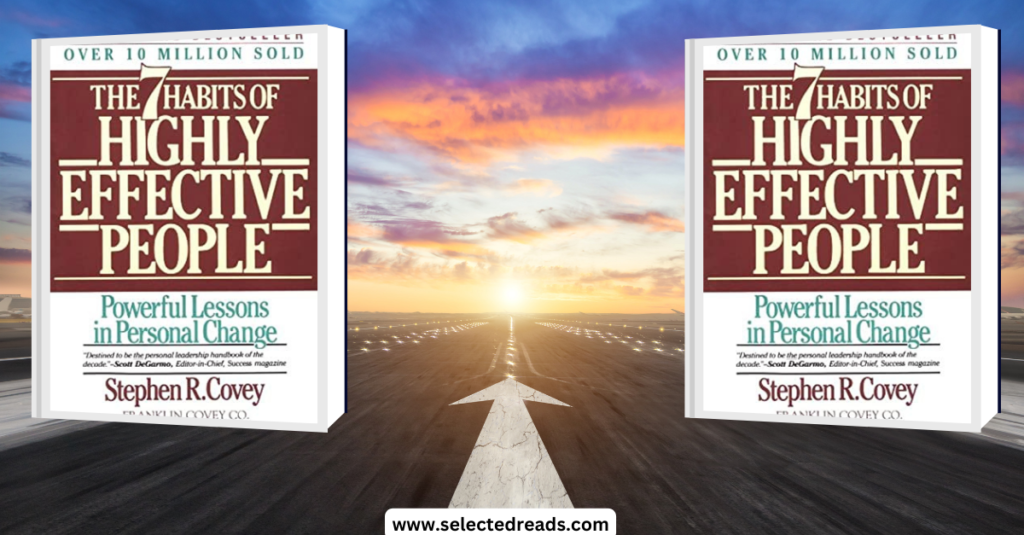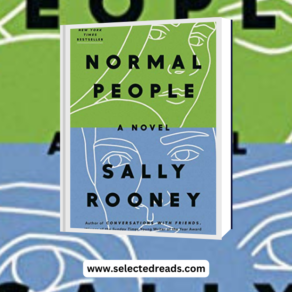“The 7 Habits of Highly Effective People” is a timeless self help book authored by Stephen R. Covey. As someone who has read the book multiple times, each reading journey has revealed new insights, illuminating different facets of personal growth and leadership I hadn’t entirely grasped previously.

Therein lies the beauty of this book: it opens doors to continuous self-improvement, enabling the reader to cultivate a more effective personal and professional life. It’s a book I wholeheartedly recommend to anyone who seeks not just to thrive, but to lead a more fulfilling and successful life.
[Related: Best Quotes from the Seven Habits of Highly Effective People]
The book is based on seven key principles or “habits” that, according to Covey, are shared by people who operate at the highest levels of effectiveness. Covey advocates for a principle-centered, character-based, and “Inside-Out” approach to personal and professional effectiveness.
The first three habits focus on self-mastery, moving from dependence to independence.
- Be Proactive: This habit revolves around the ability to control one’s environment rather than being controlled by it. It encourages taking charge of our responses to external stimuli and choosing to respond in alignment with our values rather than reactively.
- Begin with the End in Mind: This habit underlines the importance of direction in our lives. It’s about visualizing our goals, defining our mission, and aligning our actions accordingly. It highlights the significance of a personal vision and the principle of leadership that begins within.
- Put First Things First: This habit deals with effective self-management. It teaches how to prioritize tasks based on their importance rather than urgency, allowing us to focus on long-term goals rather than getting lost in the immediacy of the mundane.
The next three habits talk about interdependence, highlighting how effective cooperation can lead to a “win-win” situation.
- Think Win-Win: This habit is about cultivating an abundance mindset, where we seek mutual benefit in all interactions, ensuring success is not achieved at the expense of others.
- Seek First to Understand, Then to Be Understood: This habit is about empathic communication. It encourages us to understand others deeply before trying to make them understand us. It’s about listening with the intent to understand, not to respond.
- Synergize: This habit is centered around creative cooperation and teamwork. It illustrates how the sum is greater than its parts, and through effective, respectful communication, we can arrive at solutions that are mutually beneficial.
Finally, Covey emphasizes the importance of self-renewal with the seventh habit.
- Sharpen the Saw: This habit is about maintaining balance and preserving our greatest asset—ourselves. It emphasizes regular, balanced self-renewal in four areas: physical, social/emotional, mental, and spiritual.
The 7 Habits framework isn’t a quick fix for personal and professional issues but a guide for lifelong growth and continuous improvement. It’s an ethos that allows individuals to bring out the best in themselves and others, navigating the complexities of an interdependent reality.
In each re-read of the book, I have found myself discovering deeper layers of understanding, sometimes related to a habit I thought I had fully comprehended. This only speaks volumes about the richness and relevance of Covey’s work, making it an enduring guide for personal and professional effectiveness.
Therefore, whether you are a budding entrepreneur, an established executive, or someone simply seeking growth, “The 7 Habits of Highly Effective People” serves as an invaluable tool, offering insights to enrich your journey towards effectiveness and fulfillment. It’s a book that deserves to be revisited time and again, for each reading will provide you with a fresh perspective and deeper understanding of your path to effectiveness.
Book Club Questions
If you are looking for some questions to lead your book club discussions around this book, check out the suggestions below:
- Understanding the Habits: Do you feel that the seven habits presented by Covey are universal? Are there other habits you believe should be included? Why?
- Personal Effectiveness: Which of the seven habits resonates most with you personally? Can you share an instance from your life where you applied or could have applied it?
- Challenges: Which habit do you find the most challenging to implement in your daily life and why?
- Impact: How do you think applying these habits could impact your personal life, your professional life, or your relationships?
- Habit Integration: Covey suggests these habits should be incorporated as a whole for them to be truly effective. Do you agree with this view? Can these habits be effective if adopted individually?
- The Sequence: Do you agree with the sequence of the habits presented by Covey? For instance, is it crucial to master the first three (self-mastery) habits before moving onto the next three (interdependence) ones?
- Application in Society: How can these habits be applied on a larger scale, such as within organizations, communities, or even nations? What changes do you think might occur?
- Evolution over Time: Since the book was first published in 1989, do you feel the relevance of these habits has changed? Are they timeless, or have societal changes impacted their effectiveness?
- New Insights: For those who have read the book more than once, have you found new insights or interpretations in your subsequent readings? If so, what were they?
- Personal Growth: As you finished the book, what was your main takeaway? How do you plan to implement these habits into your life?
I hope you find The 7 Habits of highly effective people summary helpful!





